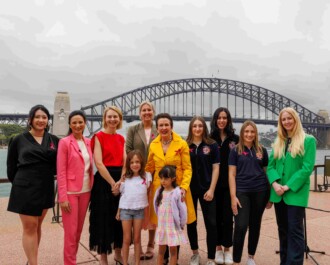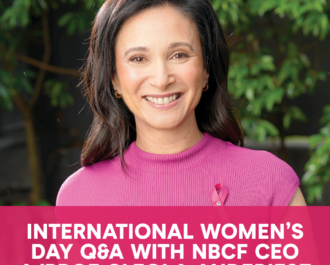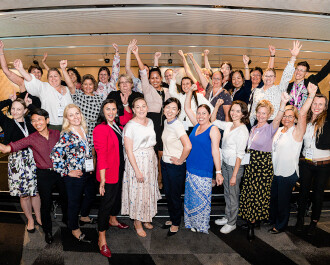
Around 7,500 Australians will be diagnosed with familial breast cancer over the next five years that cannot be explained by known genetic risk factors; NBCF is investing in research to identify and learn more about these ’missing matches’.
Around 10–15% of all breast cancers are familial breast cancers – breast cancers that occur due to genetic risk factors passing down through the family line. Around half of these familial breast cancers cannot be explained by known breast cancer genetic risk factors.
The National Breast Cancer Foundation (NBCF) is investing in world-class research to uncover these unknown genetic faults that occur in families, that may increase the risk of developing breast cancer.
NBCF has coined the term ‘missing matches’ to describe these unknown genetic faults and finding them is an important reaching step towards NBCF’s vision of Zero Deaths from breast cancer.
“We want to uncover these missing matches to help families understand their risk of developing breast cancer. We also know that people with some familial breast cancers may a higher risk of relapse and people with some hereditary gene mutations are more likely to develop more aggressive subtypes of cancer, like triple negative breast cancer. The discovery of these genetic faults can help people make informed decisions about prevention, screening and care and could change the outcome for the women and men who lose their lives to these breast cancers each year,” said Associate Professor Cleola Anderiesz, CEO National Breast Cancer Foundation.
NBCF-funded research at the Peter MacCallum Cancer Centre led by Professor Ian Campbell in collaboration with Professor Paul James is using latest DNA sequencing technology together with clinical and biological information collected from two major studies, to look for new types of mutations that drive familial breast cancer risk.
The research involves comparing the genes of women with unexplained familial breast cancer to genes of healthy women, at massive scale. Prof James has assembled a world-leading cohort of more than 9,000 women with unexplained familial breast cancer (the ViP study), and Prof Campbell has a matched cohort of 55,000 women without breast cancer (the Lifepool study).
“The ability to study familial breast cancer on this scale, including diverse types of biological and clinical data while keeping the individual patients and families involved, is a unique opportunity,” Prof James says.
“Our goal is to expand the number of gene mutations known to contribute to familial breast cancer risk and, in doing so, help more people to understand why cancer occurs in their family so that they can access now well-established pathways to reduce their risk.”
While more research is needed before this information can be used in the clinic, Prof James and Campbell have identified over 40 suspect gene mutations and associations that may contribute to familial cancer risk.
“The major drivers of familial breast cancer risk – mutations in the BRCA1 and BRCA2 genes – were identified in the 1990s and they were relatively easy to spot because they affect a wide number of families,” says Prof Campbell. “We now have the power to search for genetic drivers of familial breast cancer risk that will be much rarer in the population, and we expect there may be many dozens of these, and each will be responsible for increasing breast cancer risk in only a small number of families.”
“The identification of genetic changes leading to breast cancer is a step towards understanding and managing the risk of developing breast cancer and potentially inform future targeted and personalised treatment for breast cancer,” said Associate Professor Samantha Oakes, Director of Research Investment, NBCF.
“Over the last 29 years, NBCF’s investment in world-class research has helped uncover new genetic faults that contribute to breast cancer risk and continuing to fund projects like this will help us achieve our vision of Zero Deaths from breast cancer.”
Since 1994, NBCF has invested $216 million into 622 research projects, and in that time, death rates from breast cancer in Australia have reduced by 43%. But with nine people dying from breast cancer each day in Australia. there is still more to do to end deaths from breast cancer.
Read more about these ‘missing matches.’
More News Articles
View all News


